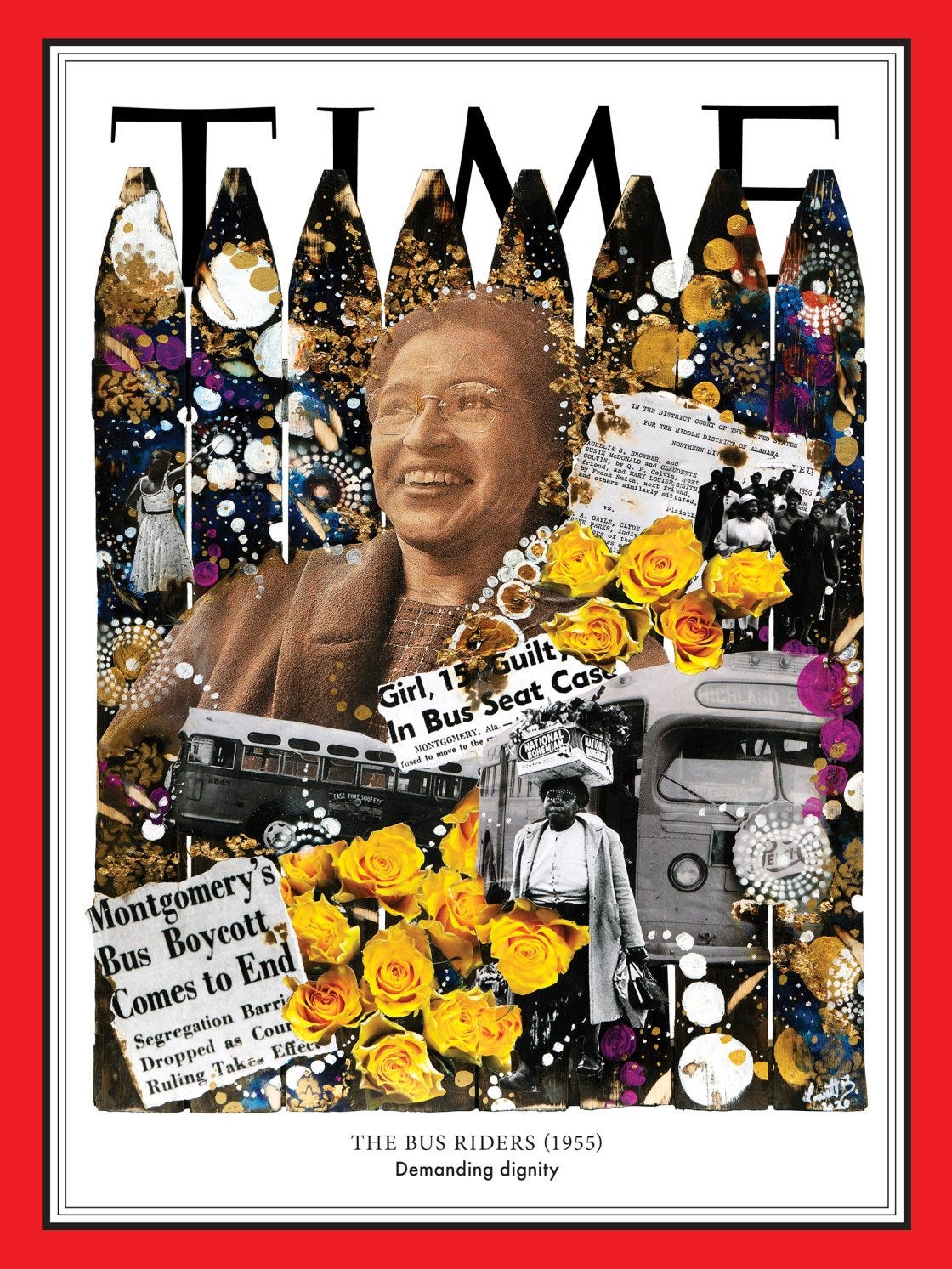Advent 2B: Acting to find a way out of no way
Isaiah 40: 1-11, 2 Peter 3:8-15a, Mark 1:1-8
Rosa Parks was an activist before her famous bus ride on December 1, 1955. She had taken training at the Highlander Folk School in Tennessee and was secretary of the Montgomery and Alabama chapters of the NAACP. She was part of an inner circle of prominent Black leaders in Montgomery.
For Parks and her fellow civil rights activists the project of ending the oppression of Jim Crow and achieving civil rights equality was huge. Daunting. Overwhelming. It was hard to know what strategy would have the best chance of success. One idea being discussed was a one-day bus boycott to protest the way Black riders were treated on segregated buses.
A decade earlier, in 1944, a 35-year-old Black woman, Viola White, had refused to give up her seat on the bus. On that day in 1944, she may not have been thinking of her situation as a constitutional test case. She may simply have wanted to get home and avoid being forced off the bus at the wrong stop – an illegal tactic even under Jim Crow which was frequently employed by Montgomery bus drivers. More likely, she knew that the bus driver was wrong, that she was within her rights to keep her seat, and that she was entitled to have her rights respected. He told her to move. She kept her seat.
Womanist theology has roots in Black, feminist and liberation theologies but it is grounded in the unique experience and spirituality of Black women. It focuses on the goal of survival.[1] Salvation is not about life-after-death. It is about surviving in the here and now. Sometimes, the only way to survive is to “Make a way out of no way.” Black women in particular often face death-dealing circumstances in which there appears to be “no way.”
In mid-century Montgomery, Black women faced the legacy of 244 years of Black enslavement, 50 years of Jim Crow and the fact that the only way to work and home was on a bus driven by a racist man who would be backed by the police. Where was “the way” in those circumstances?
In her 2008 book, Making a Way Out of No Way, Womanist theologian Monica Coleman choreographs the interaction between God and humanity on the way to salvation. In the first of four movements, she says, God presents us with many unforeseen possibilities.
In the second movement, we have to act. Movement 2 is about human agency. “Agency” is a philosophical term which refers to our capacity to act in the world. If we have agency, we are not merely reacting to outside forces. We see, we evaluate, we decide and we act. Our acting is a participation in the movement towards salvation. As the author of 2 Peter says in this week’s second reading: Be glad that God has delayed “the day of the Lord.” God’s patience gives you yet another chance to act. So do something.
What we decide to do may seem inadequate compared to the huge obstacles injustice creates. But if our acting enables us to survive in the face of death-dealing circumstances, it is right and it is sufficient. And God will use it to make a way where it seemed there was no way.
Viola White died ten years after her decision to act on the bus. The appeal of her arrest and conviction was never heard by the courts. But shortly after her death, on March 2, 1955, 15-year-old Claudette Colvin refused to give up her seat. By this time, activists were thinking about constitutional test cases and were planning for a one-day boycott. Soon thereafter, bus rider Aurelia Browder was arrested on April 29, 1955. Mary Louise Smith and Susie McDonald were arrested on October 21, and Rosa Parks was arrested on December 1, 1955.
Park’s arrest was a last straw. It ignited the planned one-day boycott. Because of Mrs. White’s experience, the lawyers knew better how to prepare the legal case. They filed in federal court on behalf of four of the bus riders and the case was heard in the U.S. Supreme Court. Browder v. Gayle [2] held that the segregation laws were unconstitutional. The planned one-day bus boycott had lasted 381 days and brought a young Black minister to national attention... Martin Luther King, Jr.
“Once we act, God works with what we have offered to God and to the world in order to influence us in the next moment. God is always working with what the world has to offer.”[3]

Next week: Advent 3 and Movement 3 - The goals of survival, justice and quality of life.
---------------------------------
Photo: Walking to work during the boycott
[1] Black and liberation theologies focus on the Exodus story and its liberation theme. Womanist theology looks to the story of Hagar (Genesis 16 & 21) in which God offers possibilities for survival. Hagar’s story is central in Delores S. Williams’ landmark book, Sisters in the Wilderness: The Challenge of Womanist God-talk, (Orbis Books, Maryknoll, NY 1993.)
[2] William Armistead "Tacky" Gayle, Jr. was the mayor of Montgomery, Alabama, from 1951 to 1959.
[3] Monica A. Coleman, Making a Way Out of No Way: A Womanist Theology, (Fortress Press:Minneapolis, MN ) 2008, at 74.


